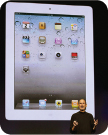Speaking Ethically and Responsibly

Your responsibility as a speaker goes beyond simply giving credit to others’ work; you need to take responsibility for what you say.1 If you use inflammatory, hurtful, or hateful language, even quoted and cited from another source, you will bear the brunt of the audience’s reactions.
The First Amendment to the U.S. Constitution guarantees every citizen the right to free speech, but not all speech is ethical. As a public speaker, you are responsible for providing your audience members with all of the necessary information for them to make accurate, appropriate decisions about you and your message. The speeches by Chinese leader Deng Xiaoping, who tried to intimidate Chinese citizens into revealing the whereabouts of leaders of the unsuccessful 1989 student uprising in Tiananmen Square in Beijing, were unethical and coercive. In addition, it’s important to recognize that the right to free speech in this country is not without limits. As Supreme Justice Oliver Wendell Holmes wrote in 1919, the Constitution “would not protect a man falsely shouting fire in a theater and causing a panic” (Schenck v. United States, 1919). Speech that endangers people—
Although everyone has different standards for ethical communication, the qualities of dignity and integrity are universally seen as core to the idea of ethics. Dignity is feeling worthy, honored, or respected as a person; integrity is incorruptibility, the ability to avoid compromise for the sake of personal gain (Gudykunst, Ting-
AND YOU?
Question
Consider your own personal opinions about ethical speaking. Would you add anything to the four principles noted here? If so, what characteristics would you cite?
- Trustworthiness refers to being honest with your audience about the goal of your message and providing accurate information.
- By treating people right, you are showing respect. In public speaking, respect is shown by focusing on issues rather than on personalities, allowing the audience the power of choice, and avoiding excluding the audience in discussions.
- As a responsible public speaker, it is your job to consider the topic and purpose of the speech, evidence and reasoning of the arguments, accuracy of your message, and honest use of emotional appeals.
- Ethical public speakers must be fair by presenting alternative and opposing views to the audience. A fair speaker will not deny the audience the right to make informed decisions.
BACK TO
Steve Jobs
 At the beginning of this chapter, we talked about how the late Steve Jobs’s careful preparation and intimate knowledge of his projects enabled him to be a powerful public speaker on behalf of his company. Let’s take a look at his presentation skills in light of what we’ve learned in this chapter.
At the beginning of this chapter, we talked about how the late Steve Jobs’s careful preparation and intimate knowledge of his projects enabled him to be a powerful public speaker on behalf of his company. Let’s take a look at his presentation skills in light of what we’ve learned in this chapter.
- Clearly, Steve Jobs enjoyed technology. But he also knew the importance of preparation and practice. If he relied entirely on presentation aids, he would have fallen flat during inevitable technical glitches. His research and preparation shined brighter than this presentation technology.
- Jobs also knew his audience. His audience of Apple fans was always eager to hear what he had to say and see what he had to show. He didn’t bother talking about competing products, because he knew the crowd was more interested in hearing about Apple products.
- Prior exposure played a role in the way Jobs presented his products. The original iPod, launched in 2001 along with the iTunes Store, was a revolutionary device, and Jobs’s presentation was full of surprises for his audience. When introducing later iterations of the device, Jobs focused only on new features and options.
- The company also limits prior exposure by maintaining a high level of secrecy about products in development. When Jobs introduced a new product, there was little chance that the crowd had already heard anything more than rumors about it beforehand, which affected how Jobs presented information to the audience.